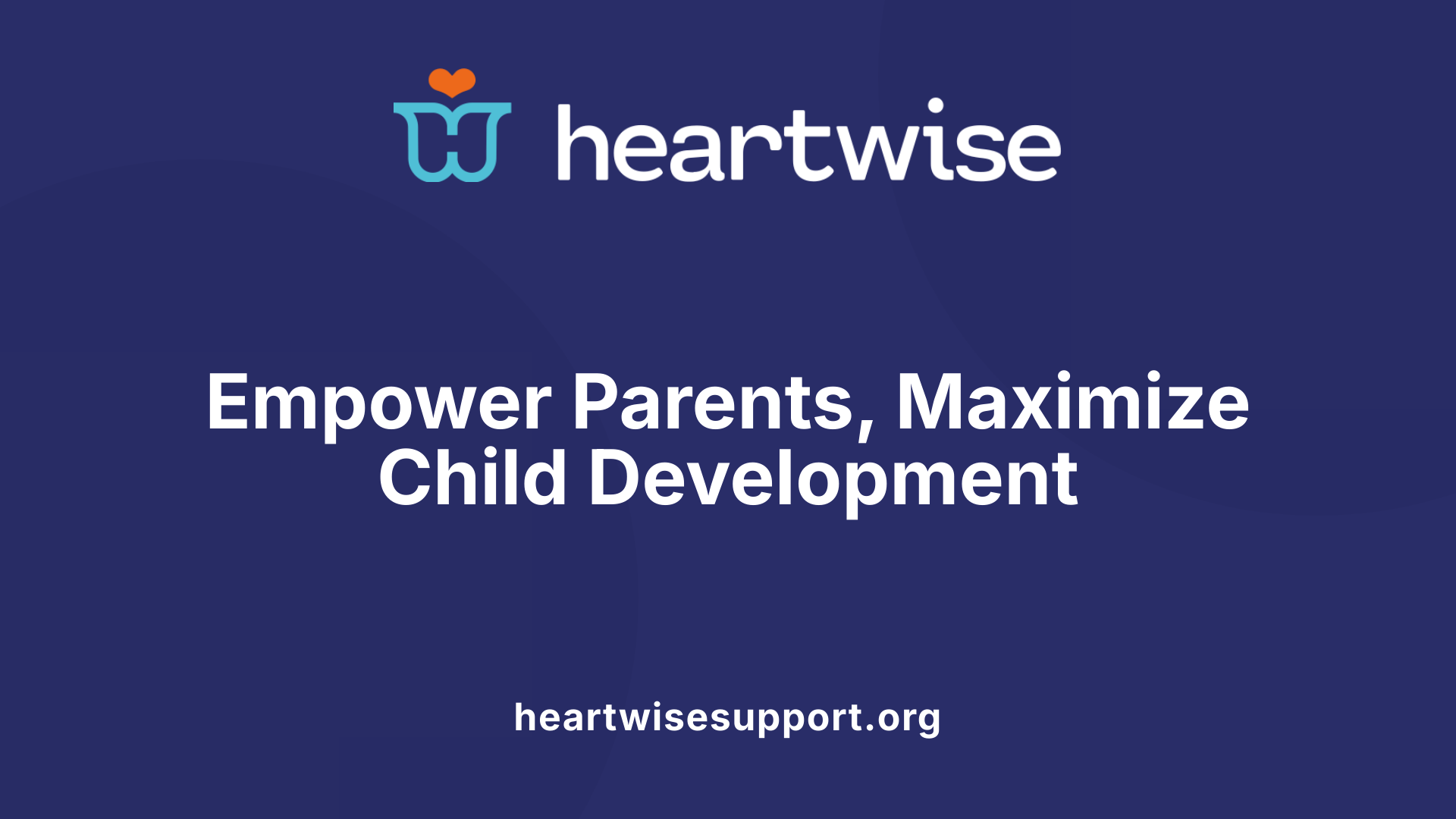Understanding the Critical Role of Parent Involvement in ABA Therapy
Parent training is an integral component of Applied Behavior Analysis (ABA) therapy, playing a vital role in maximizing treatment effectiveness for children with autism and other developmental disabilities. By equipping parents, caregivers, and family members with essential skills and knowledge, parent training fosters a collaborative environment that enhances skill generalization, behavior management, and long-term progress. This article explores the multifaceted benefits of parent training in ABA, emphasizing its importance in promoting child development and strengthening family bonds.
The Foundations and Necessity of Parent Training in ABA

What is the role of parent training in ABA therapy?
Parent training is a fundamental part of Applied Behavior Analysis (ABA) therapy. It involves educating and supporting parents, caregivers, and family members in implementing ABA strategies at home and in other natural settings. This training covers essential principles like reinforcement, prompting, and data collection, enabling parents to reinforce learned skills and manage behaviors effectively.
Parents learn to assess their child's unique needs, adapt techniques to fit daily routines, and promote the generalization of skills across different environments. Collaborative, hands-on training sessions help parents practice these strategies while receiving immediate feedback from trained professionals. This active involvement is crucial for ensuring consistency, reinforcing progress, and fostering long-term development.
Why is parent training considered a medical necessity?
Research shows that parent training significantly improves treatment outcomes for children with autism, developmental disabilities, and challenging behaviors. It is recognized as a medical necessity because it equips families with the tools needed to support and sustain behavioral gains outside clinical settings.
Effective parent training enhances the child's ability to generalize skills learned during therapy, reduces regression, and minimizes the need for extensive professional intervention over time. This involvement also boosts parent confidence, reduces stress, and promotes a more cohesive family environment, all contributing to more successful therapy outcomes.
What are the components of effective parent training programs?
Successful parent training programs incorporate several core elements:
| Component | Description | Benefits |
|---|---|---|
| Initial Assessment | Understanding the child's needs and family goals | Tailored strategies that address specific challenges |
| Education on ABA Principles | Teaching fundamentals like reinforcement and behavior functions | Foundation for consistent implementation |
| Hands-on Practice | Role-playing and real-life application of strategies | Builds parent's confidence and skills |
| Data Collection Training | Learning how to monitor and analyze progress | Enables data-driven adjustments |
| Ongoing Support | Continual coaching, resources, and feedback | Sustains progress and addresses new challenges |
| Collaboration | Regular communication between parents and therapists | Ensures unified approaches and shared goals |
These elements provide a comprehensive framework that promotes effective learning, consistency, and long-term success in supporting a child's development.
Overall importance
Parent involvement through training in ABA creates a collaborative environment where families become active partners in their child's journey. This shared effort not only enhances the child's skill acquisition and behavior management but also strengthens family bonds and reduces parental stress.
By continuously supporting parents with education, practical tools, and ongoing guidance, ABA programs maximize treatment efficacy. Ultimately, trained parents are better equipped to reinforce and sustain positive changes, helping children with autism reach their full potential across all areas of life.
Enhancing Child Development and Behavioral Gains through Parent Training

What are the benefits of parent training in ABA therapy for children with autism?
Parent training in Applied Behavior Analysis (ABA) offers extensive advantages for children with autism. It equips parents with essential skills and knowledge to reinforce positive behaviors, manage challenging ones, and support their child's development across multiple settings. This active involvement helps boost communication, social skills, and daily living abilities by enabling parents to implement personalized strategies that encourage skill generalization.
Beyond skill development, parent training plays a vital role in strengthening family bonds and reducing parental stress. Caregivers gain confidence and competence, making them better advocates for their child in educational and community environments. The collaborative approach fostered through training ensures consistency in applying behavioral strategies, resulting in more effective therapy outcomes. Overall, parent training serves as a crucial component in enhancing treatment success and fostering long-term growth in children with autism.
How does parent training facilitate the generalization of skills across environments?
One of the significant goals of ABA therapy is to ensure that children reliably transfer learned behaviors to different settings such as home, school, and community. Parent training achieves this by instructing caregivers to apply uniform strategies across these various environments.
When parents are trained to use consistent reinforcement and prompting techniques, children are more likely to internalize and maintain skills beyond the therapy room. This consistency in routine, visual supports, and behavioral expectations supports children in demonstrating skills reliably in everyday contexts. As a result, skill generalization becomes more rapid and sustainable, reducing chances of regression.
Furthermore, having parents actively involved in implementing these strategies creates a seamless support system for the child. It ensures that learned skills are continually reinforced, which is essential for fostering independence and versatility in applying new behaviors in real-life situations.
How does parent training impact skill maintenance and independence in children?
Parent training significantly contributes to the maintenance of skills and the development of independence in children with autism. It teaches parents how to provide ongoing reinforcement of behaviors learned during formal therapy sessions.
Consistent application of ABA techniques—such as positive reinforcement, prompt fading, and opportunities for learning—helps children retain and extend their skills over time. This ongoing reinforcement minimizes the risk of regression and supports autonomous functioning.
As parents become more confident and proficient in the use of behavioral strategies, children gain more opportunities to practice skills independently. This increased independence is crucial for daily functioning, social participation, and overall quality of life. Regular reinforcement and family involvement foster a sense of mastery and promote lasting developmental gains.
What role do reinforcement and prompts play in the success of parent training?
Reinforcement and prompts are foundational elements of ABA that underpin the effectiveness of parent training. Reinforcement involves providing positive consequences to increase the likelihood of a behavior recurring, while prompts guide the child toward the correct response and are gradually faded as the child gains independence.
Parent training focuses on teaching caregivers to use these strategies effectively in natural environments. Proper use of reinforcement helps children associate specific behaviors with positive outcomes, motivating continued effort. Prompting strategies prepare children to perform desired behaviors and are systematically reduced to promote independence.
When parents consistently apply reinforcement and prompts, children are more likely to acquire new skills, demonstrate them reliably, and sustain them over time. This consistent application leads to meaningful, long-lasting improvements. It also builds parental confidence, as caregivers see tangible progress resulting from their efforts.
| Aspect | Explanation | Related Strategies |
|---|---|---|
| Skill Acquisition | Using reinforcement and prompts to teach new behaviors | Positive reinforcement, verbal prompts, visual cues |
| Skill Maintenance | Ensuring learned skills are retained over time | Consistent reinforcement, fading prompts |
| Generalization | Transferring skills across settings | Applying strategies at home, school, community |
| Parental Confidence | Building caregiver’s ability to implement strategies | Ongoing education, feedback, support |
Parent training empowers caregivers with the tools needed to foster meaningful developmental progress, ultimately supporting children in reaching their full potential.
Strategies for Effective Parent-Professional Collaboration in ABA

Building trust and communication between parents and therapists
Successful ABA therapy heavily depends on a strong partnership between parents and professionals. Building trust starts with transparent communication, where therapists clearly explain intervention plans, strategies, and progress updates. Listening actively to parents’ insights and concerns fosters mutual respect and understanding. Consistent, respectful interactions help create a collaborative environment where parents feel valued as essential team members.
Open communication also involves regular check-ins through meetings, phone calls, or digital platforms. This ongoing dialogue allows for adjustments based on the child's evolving needs and encourages parents to voice their questions or observations.
Establishing a rapport helps parents gain confidence and trust in the therapeutic process, which is essential for consistent implementation at home and other settings.
Establishing shared goals and expectations
For effective collaboration, setting clear, achievable goals that align with the family's values and priorities is crucial. Therapists and parents should participate in joint goal-setting sessions, where they outline specific behaviors or skills to work on, such as communication, social interactions, or independence.
Having mutual expectations about the roles and responsibilities of each party also helps prevent misunderstandings. For example, therapists can clarify the techniques parents will learn and how they should be applied, while parents can share their routines, challenges, and insights.
Documenting goals and expectations allows everyone to stay focused and measure progress collectively. It also encourages a sense of shared ownership and motivation.
Ongoing support and coaching for parents
Providing continuous support and coaching ensures that parents feel competent and confident in applying ABA strategies. Regular coaching sessions can be scheduled in person or virtually, allowing parents to practice skills, receive feedback, and troubleshoot challenges.
Therapists can also offer tailored resources, such as visual guides, behavior tracking tools, or videos demonstrating proper techniques. Creating peer support networks or connecting parents with local groups helps foster camaraderie and shared learning.
Flexibility in coaching approaches is vital; some parents benefit from more frequent, short check-ins, while others prefer periodic comprehensive reviews. This personalized support helps sustain consistent implementation, promotes long-term success, and reduces parental stress.
Additional Resources
| Strategies | Description | Benefits |
|---|---|---|
| Regular communication | Scheduled check-ins | Builds trust, ensures alignment |
| Shared goal setting | Joint planning sessions | Clarifies expectations, enhances motivation |
| Virtual coaching | Online support sessions | Increases accessibility, convenience |
| Peer support groups | Parent networks | Emotional support, resource sharing |
| Practical training | Hands-on demonstrations | Builds confidence, improves fidelity |
Enhancing collaboration between parents and professionals in ABA therapy through these strategies creates a more effective, sustainable, and supportive environment for children’s development. When parents are actively involved, they reinforce learned skills across settings, which leads to faster progress and more meaningful behavior change.
Empowering Families for Lasting Change
In conclusion, parent training in ABA therapy is a vital element that significantly enhances children's developmental trajectories and behavioral outcomes. By actively involving parents in the intervention process, therapy becomes more consistent, generalized, and sustainable across all settings. The collaborative efforts between therapists and families not only empower caregivers with practical skills but also foster stronger familial bonds and reduce stress. With accessible resources, ongoing support, and a comprehensive understanding of ABA principles, parents are equipped to support their child's journey toward independence and success. Ultimately, investing in parent training creates a foundation for lasting change—turning therapeutic gains into lifelong skills and improving quality of life for children and their families.
References
- 8 Reasons to Complete ABA Parent Training
- ABA Parent Training Programs for Children with Autism
- The Crucial Role of Parents in ABA Therapy for Children
- The Importance of Parent Training in ABA - Compleatkidz
- The Crucial Role of Parent Training in ABA: Unlocking Success ...
- The Role of Parent Training in ABA Intervention - Clinical Behavior
- Effective ABA Parent Training - Brady Behavioral Analysis
- The Importance of Parent Involvement in ABA Therapy Success
- The Ultimate Guide to Parent Training in ABA
- The Importance of Parent Training in ABA Therapy: Empowering ...











